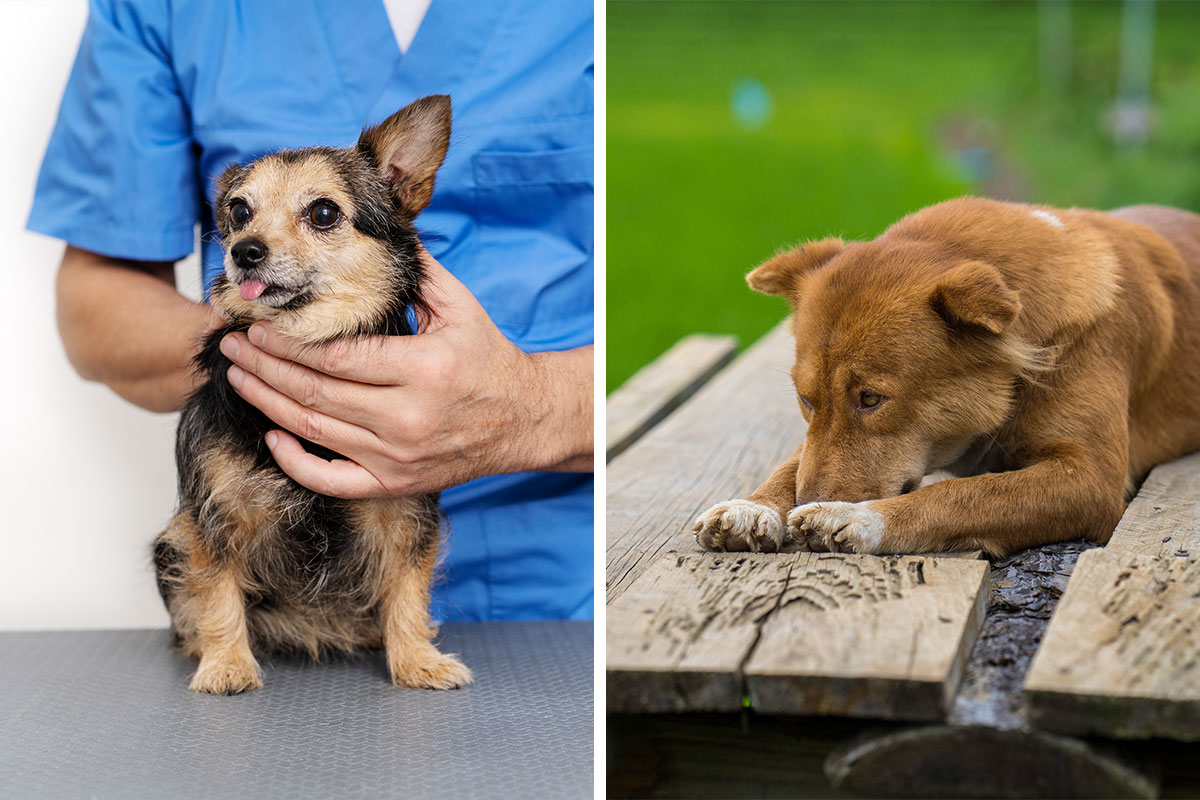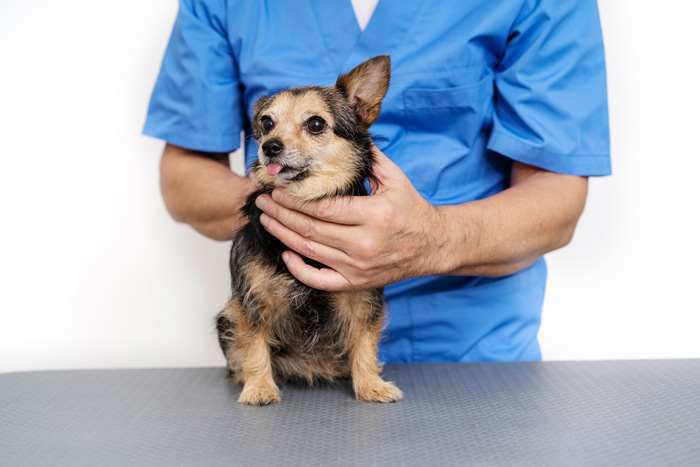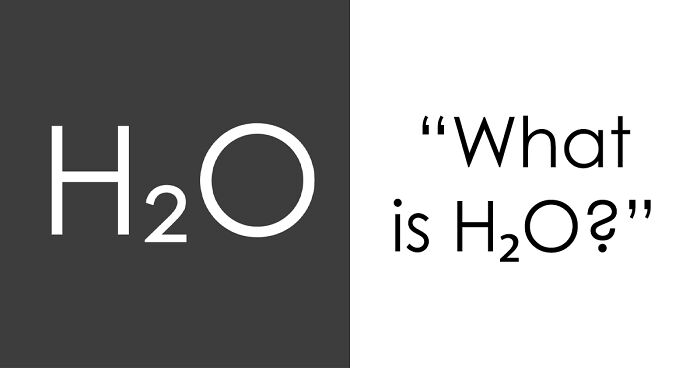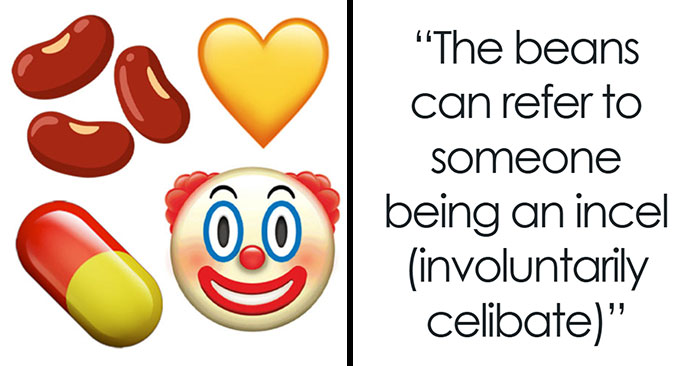If you’re a dog owner, you may not have seen your dog regurgitate but you have probably come home to a pile of saliva-covered, undigested food on the floor. In this article, we will explore regurgitation in dogs including the causes, symptoms, and treatment.
The information provided herein is for informational purposes only. Please refer to our disclaimer for more details..
What Is Dog Regurgitation?
According to Merriam-Webster dictionary, the definition of regurgitation is “the casting up of incompletely digested food.” This means the food that is regurgitated has usually not reached the stomach to be digested. With this in mind, we can infer that regurgitation is usually related to a problem with a dog’s esophagus such as esophageal dysfunction or obstruction.
- Regurgitation in dogs usually indicates an esophagus issue, not a stomach problem.
- Differentiating regurgitation from vomiting is crucial for diagnosis.
- Common causes include esophagitis, megaesophagus, and myasthenia gravis.
- Diagnosis may involve x-rays, fluoroscopy, endoscopy, and specialized bloodwork.
- Aspiration pneumonia is a serious complication of dog regurgitation.
There is a common misconception that the transport of food from the mouth to the stomach is a fairly simple and passive process. This is not true. The movement of food from the mouth to the stomach requires a great deal of coordination involving important reflexes and appropriate muscular contraction and relaxation. If this intricate and complex process is disturbed, regurgitation may ensue.
Differentiating Between Vomiting and Regurgitation
When an owner reports that her dog is throwing up, the first thing we need to do is determine whether her dog is vomiting or regurgitating. Regurgitation and vomiting are two very different processes with different underlying causes. So how can we tell the difference?
Vomiting is an active and forceful process that is associated with the stomach and upper small intestines. Perhaps the most notable characteristic of vomiting is abdominal contractions. These dogs are usually nauseated which often manifests as drooling and excessive saliva or lip licking. Vomiting can be a fairly noisy experience where dogs retch or their stomachs may growl. The expelled dog vomit consists of digested or at least partially digested food. The contents of the vomit may or may not contain bile, making it green or yellow. Check out this article to learn more about why your dog may be vomiting yellow bile.
In contrast, regurgitation is different from vomiting because it is much more passive as it is associated with the mouth, pharynx, or esophagus. These are some of the symptoms more commonly observed with regurgitation:
• No abdominal contractions or heaving; more closely resembles a burp
• Usually occurs soon after eating or drinking
• Regurgitated material is liquid or undigested food often covered in mucus
• Undigested food is often shaped like a tube because it comes from the esophagus
• No bile present
When to Be Concerned About Dog Regurgitation
Most dogs will occasionally have an isolated episode of vomiting or regurgitation. For example, a single episode of regurgitation can occur if your dog eats too quickly. However, if your dog regurgitates more than once or has other concurrent symptoms such as lethargy, it’s time to contact your veterinarian for further investigation. If you’re a cat owner wondering why your kitty is throwing up, check out this article to learn more.
Potential Causes of Dog Regurgitation
Regurgitation occurs when the normal transport of food or liquid from the mouth to the stomach is interrupted. Most causes of regurgitation in dogs are neurological or related to poor muscle tone in the esophagus.
Esophagitis
One potential cause of regurgitation in dogs is esophagitis or inflammation of the esophagus. Esophagitis can occur due to foreign bodies, gastroesophageal reflux, certain medications, or ingestion of an irritating substance. In dogs with esophagitis, regurgitation typically is accompanied by other symptoms like drooling, decreased appetite, difficulty swallowing, and extension of the head and neck.
Idiopathic Megaesophagus
The most common cause of regurgitation in dogs is idiopathic megaesophagus. Megaesophagus occurs when the esophagus loses muscle tone and dilates, resulting in an enlarged, air-filled esophagus. If a dog has idiopathic megaesophagus, it means there is no identifiable underlying cause for his megaesophagus.
Idiopathic megaesophagus can either be congenital, meaning present from birth, or acquired which is also referred to as adult-onset megaesophagus. In puppies with congenital idiopathic megaesophagus, puppies usually exhibit regurgitation shortly after being weaned from their mothers. In contrast, adult-onset idiopathic megaesophagus seems to occur spontaneously in dogs who are 7 to 15 years old.
Myasthenia Gravis
Myasthenia gravis is an autoimmune disease in dogs that results in muscle weakness. This muscle weakness often extends to the muscles in the esophagus, resulting in megaesophagus and dysphagia or difficulty swallowing. In a healthy dog, the muscles communicate with the nervous system via a chemical known as acetylcholine. In dogs with myasthenia gravis, the muscles’ receptors for acetylcholine are destroyed, resulting in muscle dysfunction.
In addition to regurgitation, dogs with myasthenia gravis also commonly experience generalized weakness or fatigue after activity, hindlimb weakness, vocal changes, and difficulty closing their eyelids.
Endocrine Diseases
Regurgitation can also occur secondary to an endocrine disorder.
One such condition is Addison’s disease or hypoadrenocorticism. In Addison’s disease, the adrenal glands do not produce enough of the essential hormones cortisol and aldosterone. Cortisol and aldosterone are crucial in regulating vital bodily functions related to electrolytes, metabolism, blood pressure, and response to stress. The hormone deficiency observed in Addison’s disease results in generalized illness and vague symptoms, like lethargy, vomiting, and diarrhea, that often wax and wane. Another symptom that can occur with Addison’s disease is regurgitation. Dogs with Addison’s disease tend to be young or middle-aged with females being more commonly affected. If your dog is regurgitating, it is critical to rule out Addison’s disease because if hormone levels drop too low, these dogs are at risk of developing a life-threatening condition referred to as an Addisonian crisis.
Another endocrine disease that can cause regurgitation in dogs is hypothyroidism. In dogs with hypothyroidism, their thyroid glands produce insufficient amounts of thyroid hormones. Thyroid hormones are necessary for metabolism and normal organ function. In addition to regurgitation, hypothyroid dogs may exhibit lethargy, weight gain, intolerance to cold, and changes to their skin and coat. Hypothyroidism is more common in dogs between the ages of 4 to 10 years old and seems to affect males and females equally.
Physical Obstructions
Another reason your dog may be regurgitating is due to a physical obstruction.
For example, regurgitation can be caused by esophageal foreign bodies where an object gets lodged in the esophagus. Examples of foreign bodies include bones, rawhides, toys, dental chews, and even fishhooks! In addition to regurgitation, these dogs may drool, gag, and have difficulty swallowing. In dogs with a partial esophageal obstruction, they are often able to swallow liquid but regurgitate food. If the obstruction is chronic, dogs may have a decreased appetite and weight loss. A common complication of esophageal foreign bodies is stricture formation.
Esophageal strictures are another physical obstruction that can result in regurgitation. A stricture is a band of scar tissue causing narrowing of the esophagus. Strictures are common following trauma to the esophagus.
Another potential cause of regurgitation in dogs is a birth defect known as persistent right aortic arch. With this vascular ring anomaly, the esophagus gets entrapped and compressed by the right aortic arch, resulting in regurgitation.
Diagnosing Causes of Regurgitation in Dogs
After determining that your dog is regurgitating and not vomiting, your veterinarian will consider your dog’s history and physical exam findings, including a thorough oral exam. Your vet may perform an eating trial where she observes your dog for appropriate chewing and swallowing. She will then recommend a series of veterinary diagnostic tests. These tests may include radiography, fluoroscopy, endoscopy, and bloodwork.
A normal, healthy esophagus is usually not visible on radiography, also known as x-rays. But dogs with esophageal disorders may have swallowed air that can be detected on x-rays. Radiographs are also capable of detecting tumors that may be causing regurgitation, such as a thymoma.
Another test your vet may recommend is fluoroscopy, which is essentially x-rays in real-time used to observe movement. In these contrast studies, food is mixed with barium so that your vet can watch how it moves through the esophagus. Fluoroscopy may be especially helpful in diagnosing motility disorders.
Endoscopy uses a flexible scope with a video camera to view the esophagus, stomach, and upper intestines. An endoscope allows your vet to assess for inflammation of the esophagus, scarring, abnormal swelling or narrowing, and foreign bodies.
Bloodwork is also often necessary when trying to diagnose the underlying cause of regurgitation in dogs. There are specialized blood tests designed to test for diseases like myasthenia gravis, Addison’s disease, hypothyroidism, and lead toxicity.
Treating Regurgitation in Dogs
If an underlying cause can be identified, treatment focuses on addressing the underlying cause. For example, a foreign body may be removed endoscopically, hypothyroid dogs may be prescribed thyroid supplements, and myasthenia gravis may be treated with acetylcholinesterase inhibitors.
But for other disorders like idiopathic megaesophagus where an underlying cause cannot be found, regurgitation is treated symptomatically. Management of regurgitation symptoms may include:
• Changing the consistency of food (e.g. liquid, slurries, or meatballs)
• Elevated feeding
• Smaller, more frequent meals
• Feeding a low-fat, easily digestible diet
• Medications to stimulate esophageal movement (e.g. cisapride)
• Medications to reduce stomach acid production (e.g. famotidine, omeprazole)
• Some dogs may require a feeding tube
Potential Complications of Regurgitation in Dogs
A serious health complication that can occur secondary to regurgitation is aspiration pneumonia. When a dog regurgitates, he can inhale foreign material such as food, causing an infection in his lungs. Aspiration pneumonia is a serious condition that can be difficult to treat effectively. This is why treatment and prevention of regurgitation is so important. As with all health conditions, the best thing you can do as an owner is recognize abnormal symptoms so that you can take your dog to the veterinarian for early diagnosis and treatment.
567views
Share on Facebook
 Dark Mode
Dark Mode 

 No fees, cancel anytime
No fees, cancel anytime 




 Image credits:
Image credits:  Image credits:
Image credits: 










































2
0